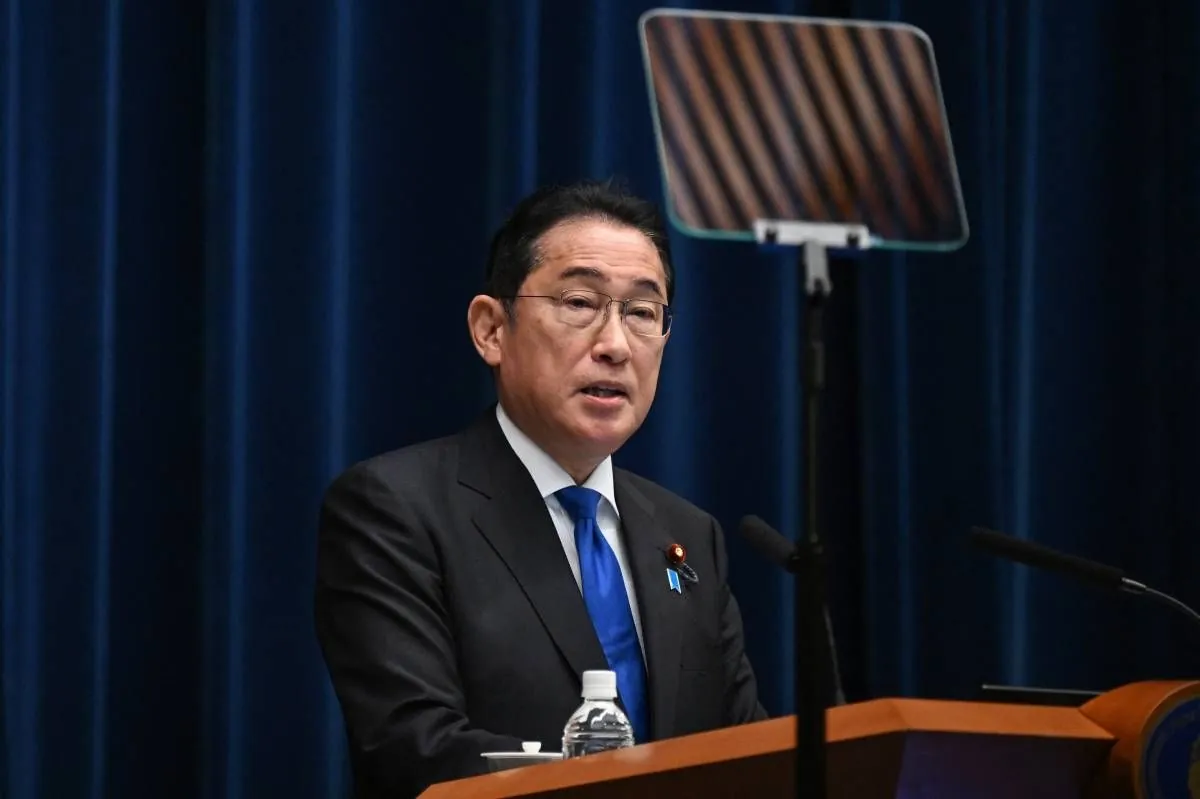Kishida's Exit: Japan's Leadership Shuffle Amid Economic Woes
Japanese PM Fumio Kishida to resign, leaving a mixed legacy of improved international ties but domestic challenges. LDP faces leadership transition amidst scandals and public discontent.

Fumio Kishida, Japan's Prime Minister, is set to step down next month, marking another chapter in the country's recent history of rapid leadership turnover. His departure comes amidst a backdrop of economic challenges and political scandals, despite some notable foreign policy achievements.
Kishida's tenure, which began in October 2021, saw initial success with strong electoral performances for the Liberal Democratic Party (LDP). However, his administration soon faced mounting pressures from domestic issues, particularly economic concerns and party scandals.

The Prime Minister's economic policies, dubbed "new capitalism," aimed to distribute wealth more equitably and promote growth. However, critics argue that these initiatives failed to gain traction. The Bank of Japan's recent interest rate hike to a 15-year high, ending a long period of negative rates, has sent ripples through global markets.
"In this presidential election, it is necessary to show the people that the LDP is changing and the party is a new LDP."
Kishida's efforts to address Japan's demographic challenges, including a pledge to double childcare spending by the early 2030s, have been overshadowed by funding uncertainties. The country's birth rate hit a record low of 1.26 children per woman in 2022, exacerbating concerns about the aging population.
On the international front, Kishida strengthened Japan's alliance with the United States and improved relations with South Korea. His administration also set an ambitious target for military spending, aiming to reach 43 trillion yen over five years, a 1.5-fold increase from previous levels.
The LDP now faces the task of selecting a new leader, with potential candidates including former Defense Minister Shigeru Ishiba, Digital Minister Taro Kono, and former Environment Minister Shinjiro Koizumi. The outcome of this leadership race could significantly impact the party's prospects in the upcoming lower house election, due by October 2025.
As Japan navigates this transition, the new leadership will need to address pressing issues such as economic revitalization, demographic challenges, and restoring public trust in the wake of recent scandals. The dissolution of LDP factions in response to funding irregularities adds an element of unpredictability to the selection process.
The next prime minister will inherit a complex legacy, balancing Japan's international commitments with the urgent need to address domestic concerns. As the world's third-largest economy grapples with these challenges, the global community watches closely to see how Japan's political landscape will evolve in the coming months.


































